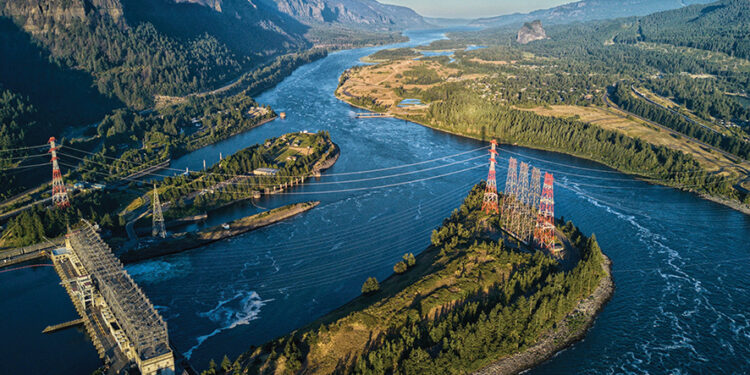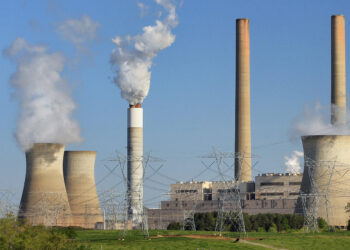The Kaspi Hydro Power Plant (HPP), set to be built on the Mtkvari River in the Kaspi Municipality, represents a significant development in Georgia’s energy sector. As a part of the country’s efforts to diversify its energy sources, the plant will utilize a run-of-the-river design, which minimizes the need for large reservoirs and reduces the impact on surrounding communities. With an installed capacity of 22.4 megawatts, the plant will be capable of producing approximately 90.2 million kWh of electricity annually, contributing to Georgia’s renewable energy supply. The project will involve constructing essential infrastructure, including a dam, power unit, fish pass, bank protection walls, and water intake structures.
However, the environmental concerns surrounding hydroelectric power plants in Georgia remain significant. The scoping report for the Kaspi HPP highlights key concerns related to the river’s hydrology, fish populations, and broader ecological systems. The Mtkvari River, which stretches across central Georgia, plays a vital role in sustaining biodiversity and local ecosystems, and any disruption to its natural flow could lead to adverse consequences for aquatic species and the surrounding environment. In particular, the project could affect fish populations, including species that are important for local fisheries.
The Kaspi HPP is part of a broader trend in Georgia, where hydropower projects are seen as a vital part of the country’s energy future
One of the central elements of the project is the construction of a fish pass, a feature designed to mitigate the impact on fish migration. The fish pass aims to allow fish to navigate past the dam and continue their migration cycles, a critical concern in preserving aquatic biodiversity. While the fish pass is a positive step towards minimizing the environmental impact, experts remain divided on its effectiveness. Many argue that fish passes have mixed success, depending on factors such as the type of fish, the design of the pass, and water flow conditions.
Georgia’s hydroelectric power development has historically been a source of both economic benefit and environmental concern. The country has an abundant supply of rivers, making it an ideal location for hydroelectric power plants. However, the environmental costs associated with such projects have been a longstanding issue, particularly in areas with rich biodiversity or where communities depend on the river for agriculture and fishing.

The potential for a cascade of HPPs, such as the planned series of plants on the Dzevra River in Imereti, raises concerns about cumulative environmental impacts. If multiple plants are developed along a single river system, it could have a more significant effect on the river’s ecosystem, disrupting fish populations, water quality, and the natural flow of the river. The Dzevra River, like the Mtkvari, is crucial to the region’s hydrology, and efforts to balance energy generation with environmental protection will be critical.
With an installed capacity of 22.4 megawatts, the plant will be capable of producing approximately 90.2 million kWh of electricity annually, contributing to Georgia’s renewable energy supply
In recent years, there has been increasing scrutiny over Georgia’s hydroelectric projects, particularly in relation to their sustainability and environmental integrity. Environmentalists have raised alarms over the potential for habitat loss, reduced water quality, and the impacts on species that rely on the river ecosystems. Local communities also express concerns about the effects on their livelihoods, as many depend on the rivers for irrigation, fishing, and other economic activities. As the demand for renewable energy grows, it is essential for developers and policymakers to find ways to minimize the ecological footprint of such projects and incorporate more comprehensive environmental safeguards.
The Kaspi HPP is part of a broader trend in Georgia, where hydropower projects are seen as a vital part of the country’s energy future. However, as the environmental assessment process continues, it will be crucial for stakeholders, including government bodies, environmental groups, and local communities, to carefully evaluate and address the long-term ecological impacts. Balancing energy needs with environmental preservation will be key to ensuring that Georgia’s natural resources are protected for future generations while continuing to foster sustainable energy development.
By Katie Ruth Davies














